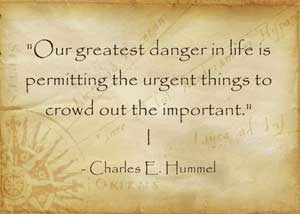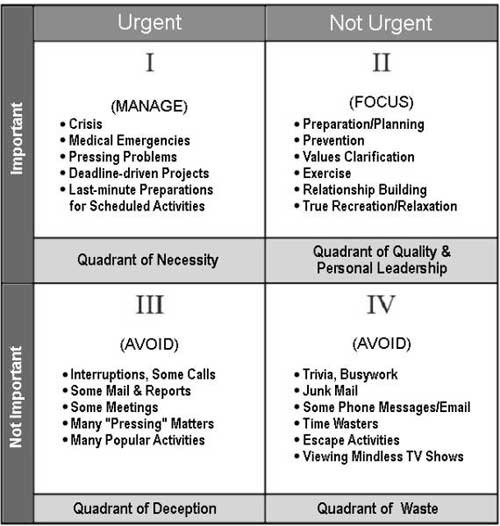 |
||
|

Kathy Wells Paauw
Productivity Consultant Certified Business & Personal Coach
Trainer
____________
FREE EZINE
Please share this article with others. Forward it to your friends or print it for easy distribution within your office.
Was this forwarded to you by a friend? Click on the logo below to subscribe today.
Paauwer Tools has been published monthly since 2000. Click here to view all previous issues.
___________

Read about Kathy's book, The Music of Your Heart.
____________
FREE BLOG
___________
FREE TELECLASSES
Attend FREE classes taught over the phone. Learn how to increase your productivity with tips, strategies and techniques that can benefit your professional and personal life immediately.__________
FREE TIPS
Check out my FREE tips. I offer many valuable tips about time management and organization.
____________
VISIT OUR OTHER
WEB SITES:
Connect with those you care about:
Keep in touch with family, friends, prospects and clients by sending a quality personalized greeting card in the mail for a dollar. We'll show you how to create and send a personalized greeting card in 2 minutes!
___________
PRODUCTIVITY TOOLS
More productivity tech tools...
_______________
RECOMMENDED BOOKS
Check out our links to some great books:
___________
PERMISSION TO PUBLISH THIS ARTICLE ELSEWHERE
If you like this article, feel free to share it with your own list, post it on your site or on your blog, or print it out to distribute...as long as you leave the text intact, include all hyperlinks, and include this at the end: ©2000-2014 Paauw Enterprises, Inc. All Rights Reserved. Wouldn't you love to stumble upon a secret library of ideas to help you de-clutter your life so you can focus on what’s most important? Kathy Paauw offers simple, yet powerful ideas, on how to manage your time, space, and thoughts for a more productive and fulfilling life. Visit www.orgcoach.net
Subscribe to ezine atwww.orgcoach.net/
subscribeme.html
___________
Urgency vs Importance
I just returned from Brisbane and Melbourne, Australia, where I spent two weeks working with my colleagues. I have more than 600 on my team from Down Under and I enjoyed meeting with some of them! I was there for three reasons:
As I met with individual members of my team, I heard the same thing from several people: "I wish I had more time!" This is such a universal challenge for people that I decided to devote a whole section of my book to addressing this topic.
Excerpts from my book,
One of the most valuable planning tools I have found is Stephen Covey's Time Management Matrix. This is a great tool for helping you evaluate your investment of time from a bigger picture view. Generally speaking, we are an urgency-addicted society. We tend to focus on that which is urgent-whether the activity is important or not. It's so easy to make urgency the dominant factor and completely lose track of what's most important. If you struggle with a strong urgency mind-set, I guarantee that you will feel more satisfied and fulfilled when you take steps to focus your time and energy on what's most important and avoid those activities that are not important to you. To help you make better decisions about how you spend your time, Covey has created the following matrix, which breaks time into four quadrants. TIME MANAGEMENT MATRIX from Stephen Covey's book "First Things First"
I'll review each of these quadrants to help you better understand the power of applying this model to your life. Quadrant 1: Quadrant of Necessity (Q1) We tend to focus on Q1 activities because they are urgent, and the need to do these activities makes itself known to us. These activities are hard to ignore because our life experiences have taught us that when we ignore Q1 activities, we get into trouble. If you have a lot of Q1 activities in your life and you find yourself frequently saying, "I have to . . ." or "I gotta . . ."-victim language-it may be time for you to reconsider what you are doing. An estimated 80 percent of the population puts themselves into a self-imposed prison cell on a regular basis. We forfeit our freedom of choice through our own thought processes. When I hear someone using victim language, I often ask them, "Do you have to or do you choose to?" There are very few things in life that you have to do. Yet some forfeit their ability to choose and view their options in life as limited. This generally leads to a feeling of hopelessness. For thirteen years, I chose to stay in a stressful career that I did not find fulfilling-one with a lot of Q1 activities attached to it. The more time I invested in that career path, the less at choice I felt. At one point, I took an exam to receive a special certification in my field. When I passed the exam and was certified, I felt like there was no turning back! I told myself, "I can't leave this field now . . . look how much I've invested in it!" And besides, I had no idea what else I could possibly do. Fear held me back until one day, the pain of not making a change outweighed the fear of the unknown. In my years of coaching, I've found that when my clients focus on their values-what's most important to them at the core-they are more at choice and less at effect. They recognize that they have the freedom to choose based on their own values versus being influenced by limiting beliefs, circumstances, or the opinions of others. Quadrant 2: Quadrant of Quality and Personal Leadership (Q2) In order to focus on these activities, one must be proactive. The more time we spend in Q2, the more quality we add to our lives. If we neglect Q2 activities long enough, sometimes they become Q1 activities (urgent and important). For example, if your spouse came home and told you that he/she was leaving if you didn't devote more time to him/her, relationship building (generally considered Q2-not urgent but important) would probably become a Q1 (urgent and important) activity. Unfortunately, "more time" never comes. We all get 168 hours a week. The best way to "find" more time is to reduce the amount of time you spend in Q3 and invest that time in Q2 activities instead. Quadrant 3: Quadrant of Deception (Q3) Q3 is known as the quadrant of deception because we get deceived into believing that these activities are important because they are urgent even though we've identified these activities as not important.The word "urgent" means that the activity is time sensitive or deadline driven. For example, an incoming phone call is considered urgent because the phone is ringing right now. It may or may not be important, but if you don't answer the phone now, it will stop ringing. Sometimes incoming e-mail, text messages, and Facebook posts feel urgent although they are often not important. You'll need to say no to or renegotiate activities that are urgent but not important to you. The only exception to this would be activities that are important to someone who is important to you, so you choose to make that activity a priority even though the activity itself is not important to you. There is a huge difference between choosing to make something important and feeling like you have to do it (victim thinking). Here's an example of when I chose to move a Q3 activity to Q1. When my daughter was little, she wanted Goodnight Moon read to her every single night at bedtime. Reading that same book every evening was not personally important to me, but because the relationship was important to me and that activity was important to her, I chose to make it important to read that book to her every night. It was urgent because bedtime was at a specific time. Quadrant 4: Quadrant of Waste (Q4) The most common Q4 activity I've encountered in my work with busy people is escape activities. When the stress level gets high enough, some people escape from reality by doing activities that do not address or resolve the problem. This is considered wasteful. Note that the same activity can fall into Q2 or Q4. If you are enjoying true recreation or you are relaxing, resting, and rejuvenating yourself, the activity falls into Q2. If you are engaged in an escape activity-doing something to avoid addressing a problem or challenge in your life-it is a Q4 activity. In other words, it's the motivation behind doing the activity that determines whether or not it is a Q2 (rejuvenating) or Q4 (escape) activity. You are the only one who can determine this. Many people are "urgency-addicted"-a self-destructive behavior that temporarily fills a void created by unmet needs. This type of addiction is as dangerous as other commonly recognized addictions and dependencies. The goal is to manage activities in Q1, focus on activities in Q2, and avoid activities in Q3 and Q4-activities that you've deemed as not important. Because so many of us are urgency addicted, we tend to spend the bulk of our time in Q1 and Q3-doing activities that are urgent and important or urgent but not important. Get clear about what your daily, weekly, and monthly core activities are; and it will be easier for you to make decisions about what's important and what is not important. Now that you have a tool to help you identify activities that are not important to you, it's time to make some conscious choices about how you spend your time in the future. I invite you to do the following:
For tips on helping you plan Q2 activities into your week, get a copy of my book, The Music of Your Heart. "The main thing is to keep © 2014 Paauw Enterprises, Inc., All Rights Reserved. |

